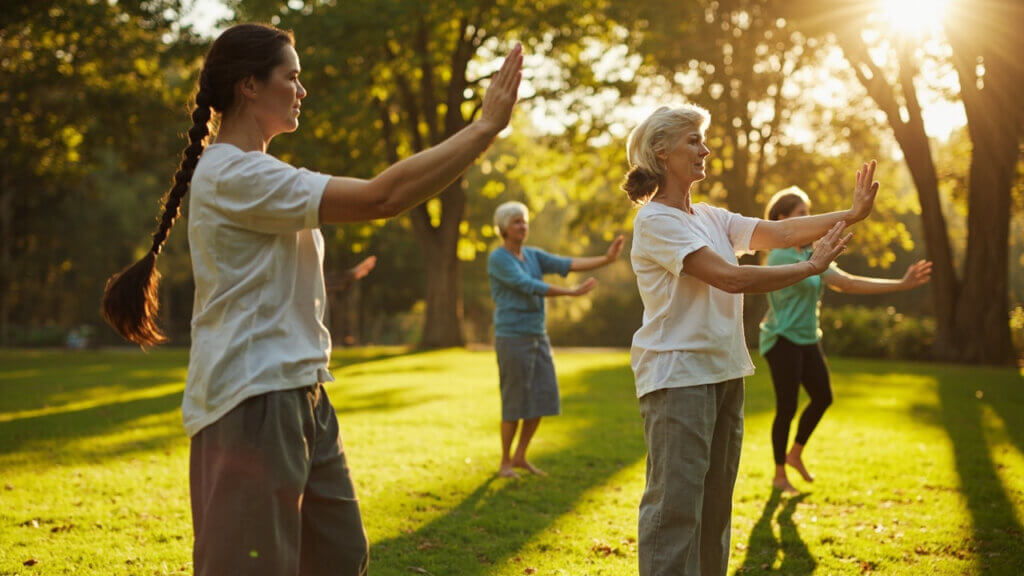One of the best parts of life after 50? Time. Time to explore, create, learn, and enjoy without the pressure of career-building or raising a family. Whether you’re newly retired or just seeking more balance, picking up a hobby can boost your mood, improve your health, and even help you make new friends.
But hobbies don’t have to be expensive or time-consuming. In fact, some of the most rewarding and joyful hobbies for older adults are simple, low-cost, and deeply fulfilling.
Ready to discover a new passion? Here are the best hobbies to try after 50 that check all the boxes: fun, affordable, and meaningful.
Why Hobbies Matter More as You Age
Studies show that having hobbies in midlife and beyond can:
- Improve brain health and memory
- Reduce stress and symptoms of depression
- Build social connections
- Promote a sense of purpose and routine
Whether you’re crafty, curious, outdoorsy, or introverted—there’s a hobby out there for you.

1. Walking Groups or Urban Hiking
Why it’s great:
- Free and easy on the joints
- Helps you explore your own neighborhood or nearby parks
- Social without being overwhelming
Find local walking groups through Meetup, your local library, or recreation centers.
2. Gardening (Even on a Balcony)
You don’t need a yard to garden. A few pots of herbs or flowers can offer surprising peace and satisfaction.
Benefits:
- Promotes movement and vitamin D
- Reduces anxiety
- Provides fresh ingredients or beautiful scenery
Try container gardening, vertical gardens, or community garden plots.
3. Birdwatching
Birdwatching is a mindful hobby that gets you outdoors and engaged with nature—no special gear required.
Why seniors love it:
- You can do it from your backyard or local park
- Enhances observation and memory skills
- Very affordable (start with binoculars and a bird guide app)

4. Journaling or Memoir Writing
Writing isn’t just for authors. Journaling, storytelling, or even blogging can be powerful tools for self-reflection and legacy building.
Try:
- Gratitude journaling
- Writing down family history or life lessons
- Starting a blog or using voice-to-text tools if writing feels tedious
5. Cooking (or Cooking for Others)
Rediscover the joy of cooking—without the rush of weeknight dinners for a family of five.
What makes it rewarding:
- Experiment with new cuisines or dietary needs
- Host potlucks or share meals with neighbors
- Join a local cooking class for fun and friendship
6. Volunteering
Give back while staying active and connected.
Ideas:
- Animal shelters
- Food banks
- Mentoring youth or reading at schools
- Hospital visitor programs
Volunteering gives structure to your week and boosts your sense of purpose.
7. Tai Chi or Gentle Yoga
Low-impact and easy to learn, these movement practices improve balance, flexibility, and mental calm.
What to try:
- Local rec centers or senior-focused fitness studios
- YouTube channels like Yoga with Adriene or Tai Chi Health
- Group classes for social and physical benefits

8. Puzzle Games and Brain Boosters
Keep your mind sharp with activities like:
- Crossword puzzles
- Sudoku
- Jigsaw puzzles
- Word or number games on apps (like Lumosity or Elevate)
These hobbies are affordable, portable, and great for brain health.
9. Creative Hobbies (Paint, Knit, Craft)
Creative expression is ageless. You don’t need to be “good”—you just need to enjoy the process.
Easy entry points:
- Watercolor kits
- Knitting or crocheting
- DIY home decor
- Adult coloring books
- Online tutorials for any skill
10. Learning a Musical Instrument or Language
You’re never too old to learn. In fact, older adults often pick up new skills faster than expected because they’re more self-motivated.
Options:
- Learn ukulele, guitar, or keyboard online
- Try language apps like Duolingo or Babbel
- Join local music circles or language meetups
You don’t have to become fluent or famous—just curious.
FAQs
I’m retired—shouldn’t I be relaxing instead of picking up new hobbies?
Hobbies are a form of relaxation. But unlike passive activities (like TV), they keep your brain and body engaged in ways that promote longevity and happiness.
What if I feel silly trying something new at my age?
You’re not alone. But here’s the truth: No one is watching. The beauty of being over 50 is the freedom to do what brings you joy—without needing permission.
How do I find local hobby groups or classes?
Check:
- Local libraries and community centers
- Senior centers or recreation departments
- Facebook Events or Meetup.com
- Your local Y, church, or college extension programs
Final Thought: It’s Not Too Late to Try Something New
Your 50s, 60s, and beyond are the perfect time to rediscover joy, creativity, and community. Whether you’re nurturing a long-lost interest or exploring something totally new, hobbies give life texture, color, and meaning.
So go ahead—plant a tomato, pick up a paintbrush, write that story, or join a walking group.
The most rewarding things in life aren’t expensive—they’re experienced.
